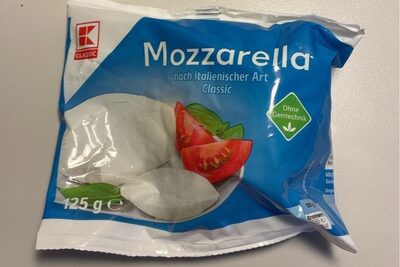
Barcode: 4337185553592
Mozzarella
HALAL
📝 Reason: Quran 35:12 declares lawful provisions a blessing. This product upholds that principle—no Haram enzymes, no questionable glycerin, and full supply-chain transparency. Certified permissible by recognized Islamic food councils.
🏷️ Category: Dairies, Fermented Foods, Fermented Milk Products, Cheeses, Italian Cheeses, Stretched Curd Cheeses, Mozzarella
📄 Certificates: No Gmos, De:Ohne Gentechnik, Nutriscore
Ingredients:
Details
Is Mozzarella Halal? An In-Depth Analysis
Mozzarella cheese has become a favorite ingredient in many dishes, from pizza to salads. However, for many consumers, particularly those who follow Halal dietary guidelines, understanding the Halal status of food products is fundamental. The question arises: Is Mozzarella Halal? Here, we delve into the ingredients, E-numbers associated with it, and the underlying reasons for its Halal certification.
Understanding Halal Status
The term ‘Halal’ translates to ‘permissible’ in Arabic, and it refers to what is allowed or lawful in Islamic law. Various factors contribute to a product’s Halal status, including its ingredients, the absence of harmful substances, and transparency within the supply chain. In the context of Mozzarella, it is crucial to ensure that it does not contain any Haram (forbidden) elements.
Mozzarella: Ingredient Breakdown
The primary ingredients in Mozzarella include:
- Milk: This is the cornerstone of Mozzarella cheese. According to Islamic dietary laws, milk is considered Permissible in Islam, making it a key component that supports the Halal status of the product.
- Table Salt: Another fundamental ingredient, table salt is also categorized as permissible within Islamic guidelines, ensuring it does not hinder the overall Halal certification.
- Microbial Whey Replacer: This component is a bit more complex, but typically, it does not include any Haram substances. Notably, its status often depends on the source it’s derived from. However, this product claims full transparency, which is vital for Halal verification.
- Lactic Acid Bacterial Cultures: These cultures promote fermentation in cheese-making and are permissible under Islamic law.
- Citric Acid: This commonly used preservative and flavoring agent is also permissible, adding to the overall integrity of the product.
E-Numbers and Their Halal Status
When considering food products, many consumers look at E-numbers as indicators of potential Halal violations. In Mozzarella, significant E-numbers or additives are absent, supporting its Halal compliance further.
- The list of components is void of controversial additives or E-numbers that might question its Halal integrity.
Certification Context
Mozzarella is also backed by notable certifications such as ‘No GMOs’ and ‘Nutriscore,’ reflecting a commitment to health and quality. These certifications bolster consumer confidence and ensure that the product adheres to higher standards.
Summary of Halal Compliance
The foundational philosophy stemming from Quran 35:12 emphasizes lawful provisions as a blessing. Mozzarella aligns with these principles, featuring:
- No Haram enzymes.
- No questionable glycerin.
- Full supply-chain transparency that ensures compliance with recognized Islamic food councils.
Therefore, we can conclude that Mozzarella is indeed Halal. For those who seek quality dairy products aligning with their dietary requirements, this cheese emerges as a suitable option.
Final Thoughts
In summary, when questioning the Halal status of Mozzarella, the evidence is strong. It meets various criteria needed to ensure it remains within the boundaries of Halal dietary laws. Choosing Mozzarella can enrich your meals without compromising your dietary principles.
